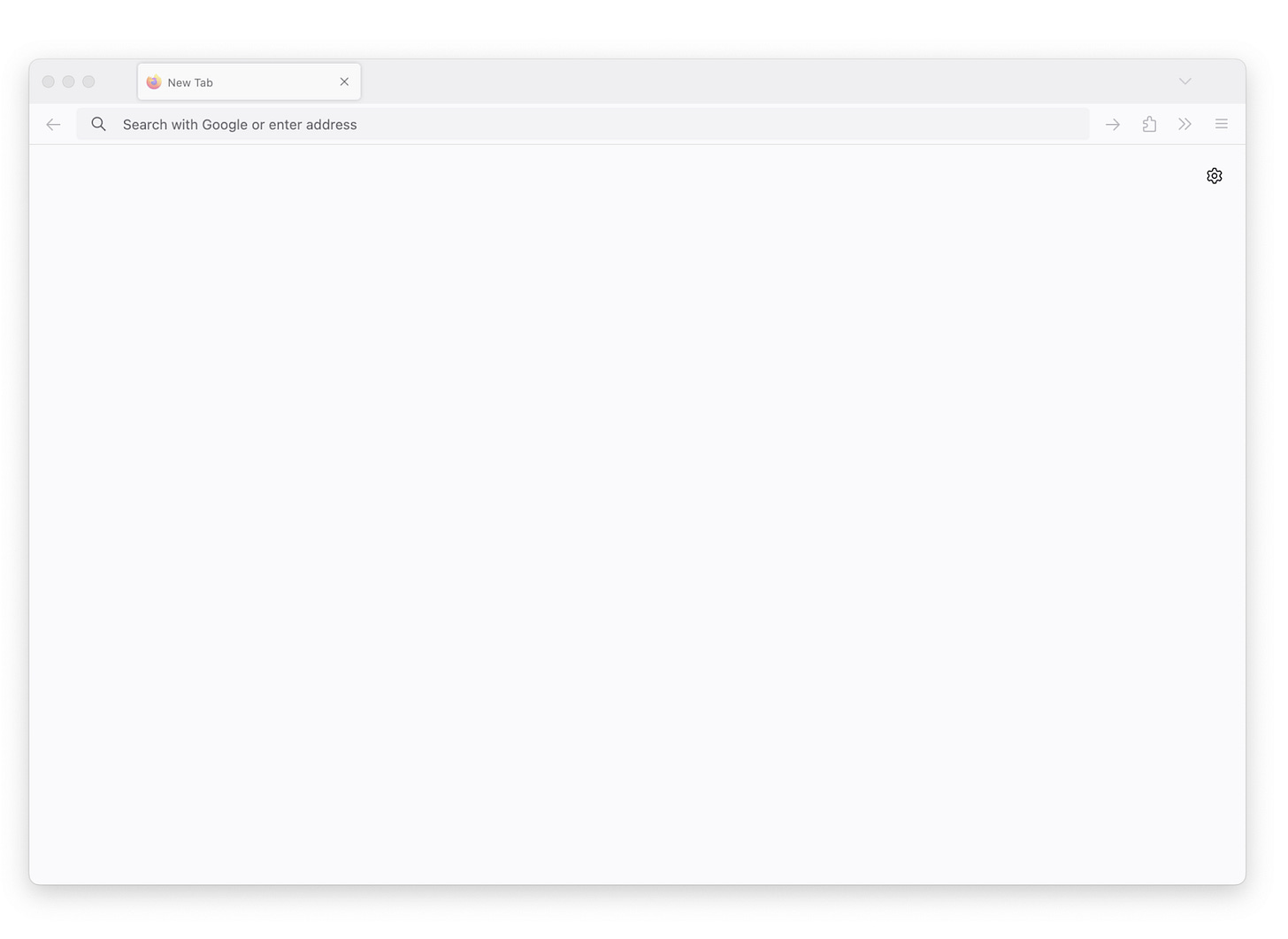The Sidebar is a limited-edition newsletter from Mozilla, the makers of Firefox. We’ll drop into your inbox every two weeks with tech insights, tips and behind-the-scenes stories about the web you won’t find anywhere else.
WHAT WE LOVED ON THE WEB THIS WEEK
Cache me outside
Hitting the “refresh” button feels just right in January – a chance to think about how we want to spend our time in the new year. I’m inspired by the story of a 27-year-old who wanted to start a chess club. People found her post on social media about it, and soon, 500 of them gathered at a warehouse to play chess IRL.
I’m not making any resolutions to cut my screen time. But it’s a great reminder that sometimes, the best way to be online is finding ways not to be.
— Kristina, editor at Mozilla
HOW-TO…
Set up the ultimate minimalist browser
Ever feel like the internet is always… yelling? From pop-up windows and ads that autoplay to the sheer size of the internet, a lot of things scream for our attention. This makes it difficult to get things done.
Firefox has privacy at its core, making it a great choice for those who want to minimize online tracking. It’s also easy to customize and make your own. As someone who does a lot of reading and research as Mozilla’s blog editor, a minimal browser helps me stay focused.
Here’s how I configured Firefox into a distraction-free workspace.
THE COMMENT SECTION
Think small
If you’ve ever had a content or internet-related job in the past decade, you’ve probably been asked to make something “go viral.”
Virality, it seems, is the endgame for every piece of content. Blog posts have to be written for maximum shareability, usually leading to outrage. Videos on YouTube are fine-tuned for the biggest reach possible, meaning everyone follows the same trends. It’s turned the social internet into one big high school where everyone is striving to be popular.
Bigger doesn’t always equal better. Social media has skewed our idea of what “good” is, by equating “good” with “big.” And — today — there’s a pushback against this very concept.
Matt Klein’s The Tiny Awards are exactly what they say in the name: a spotlight on smaller creators, creating impeccably good content for small audiences. Nobody here is trying to prop up a dubious chocolate company or a questionable sugary drink franchise with their content. Here, creators are encouraged to keep things small, poetic and heartfelt.
Above all, creators are creating for themselves. This brings artistry back into the content-sphere just as it was before the advent of social media and its algorithms. The Tiny Awards, with entries like “Infinite Craft” and “One Minute Park”, breaks through the massive amounts of noise on the internet simply because it has the chutzpah to go in the other direction.
What we like most about The Tiny Awards is that it literally encourages us to look at the internet in a healthier and more holistic fashion. This runs parallel to Mozilla’s mission to build a better, healthier, human-first internet and not just one that caters to the loudest voices in the room.
As we’re seeing in the political landscape, bigger and louder doesn’t equate to better. And one could easily argue that the current social internet isn’t really about creators at all: If an audience is influencing the moves and actions of a performer on stage, who is really in control of the performer?
And, not for nothing, but you’d think that in a post-COVID world people would stop using the word “viral”? And yet here we are.
Read our conversation with Matt here.
ONE COOL PROJECT
Redefining gaming culture
The general “vibe” of gaming over the last couple of decades has been overwhelmingly white and overwhelmingly male. But there are ample, growing communities that are challenging that notion. Black Girl Gamers is one of them, and one of the biggest.
After creating the community back in 2016 “for selfish reasons… I didn’t have many women or men or friends who were on my feed that I could play with,” founder Jay-Ann Lopez has turned the once-small Facebook group into a true cultural force. It now has over 10,000+ members from all over the world, and has partnered with the likes of Google and Netflix.
It’s helped thousands find others like themselves, and ultimately feel like they’re not alone in the gaming world. “Building Black Girl Gamers has shown me the internet’s positive side, especially in sharing culture and interests,” Jay-Ann continues. And while the internet at large is far from perfect, in certain pockets of the ‘net, communities like BGG are living proof that people can still create a home for others like themselves.
Want to know more? Read our Q&A w/ Jay-Ann right here.





I love the interviews with Jay-Ann and Matt